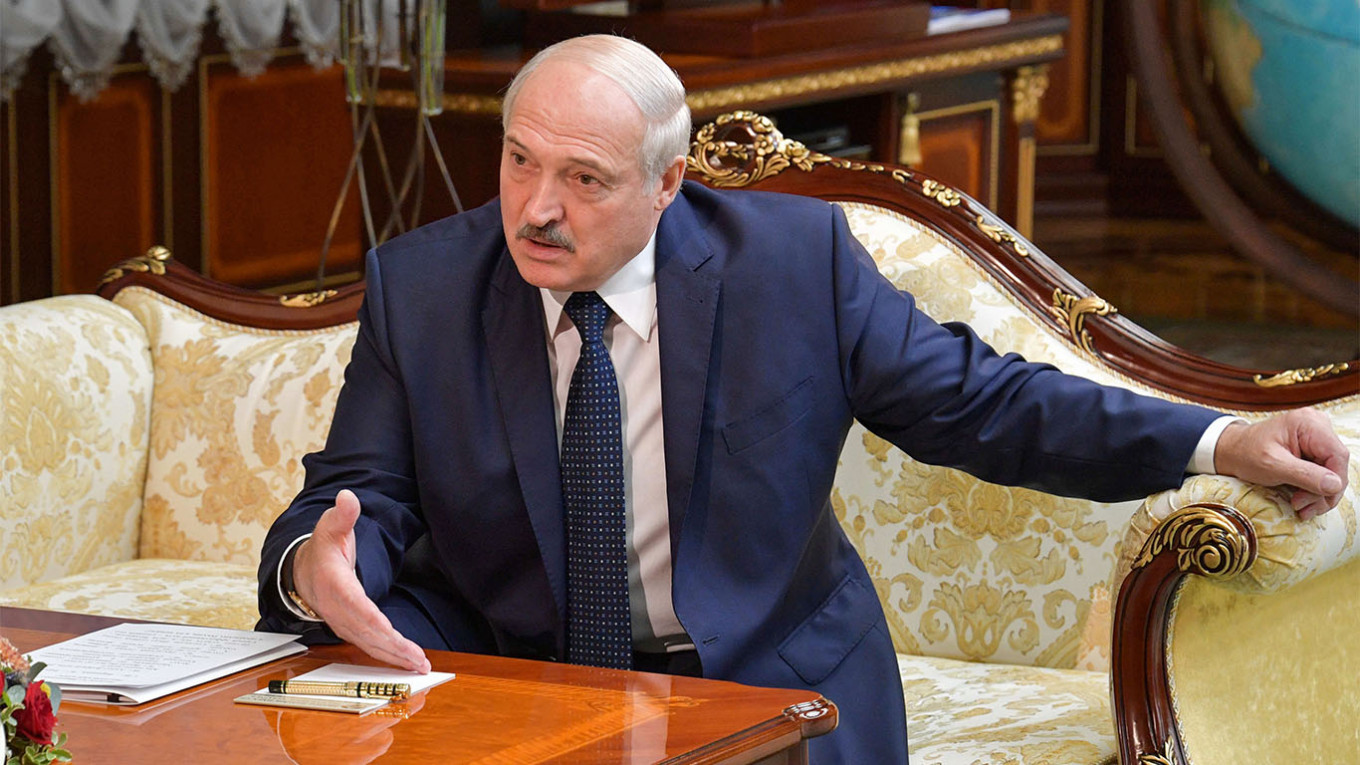
Germany “falsified” its statement that Russian opposition leader Alexei Navalny was poisoned, Belarusian strongman Alexander Lukashenko told Russia’s visiting prime minister Thursday, citing an intercepted conversation.
The German government said Wednesday that Navalny, 44, who remains in a medically induced coma and on a ventilator two weeks after falling ill on a flight, was poisoned with a substance from the deadly Novichok family. German Chancellor Angela Merkel’s demand for answers from Russia has raised the possibility of fresh European sanctions against Moscow.
“We intercepted a conversation between Warsaw and Berlin before Merkel’s statement… which clearly states that this is a falsification,” Lukashenko told Russian Prime Minister Mikhail Mishustin.
“Navalny was never poisoned,” Lukashenko said in a televised meeting shared by a Telegram channel with reported close ties to his administration.
Lukashenko claimed that Merkel made a public announcement about Navalny’s poisoning “to discourage [Russian President Vladimir] Putin from sticking his nose in Belarusian affairs.”
Belarus has been gripped by weeks of nationwide rallies against Lukashenko’s landslide victory in what opposition supporters say was a rigged presidential election. The president previously accused Russia of election meddling, then directed his ire at Belarus’ western neighbors after the Aug. 9 vote.
Lukashenko said he’ll forward the purported intercepted call between Germany and Poland to Russia’s FSB security service. Mishustin appeared stone-faced in the video of his meeting with Lukashenko.
While observers were quick to question the claims, the Kremlin said it was not yet in possession of the materials that led Lukashenko to conclude that Germany falsified the Navalny poisoning claims.
Sergei Naryshkin, who heads Russia’s SVR foreign intelligence service, told the state-run RIA Novosti news agency it was “possible” that Navalny’s poisoning was a “provocation” by Western intelligence agencies.
“If the president of Belarus said it, then he had a reason,” Naryshkin was quoted as saying.
